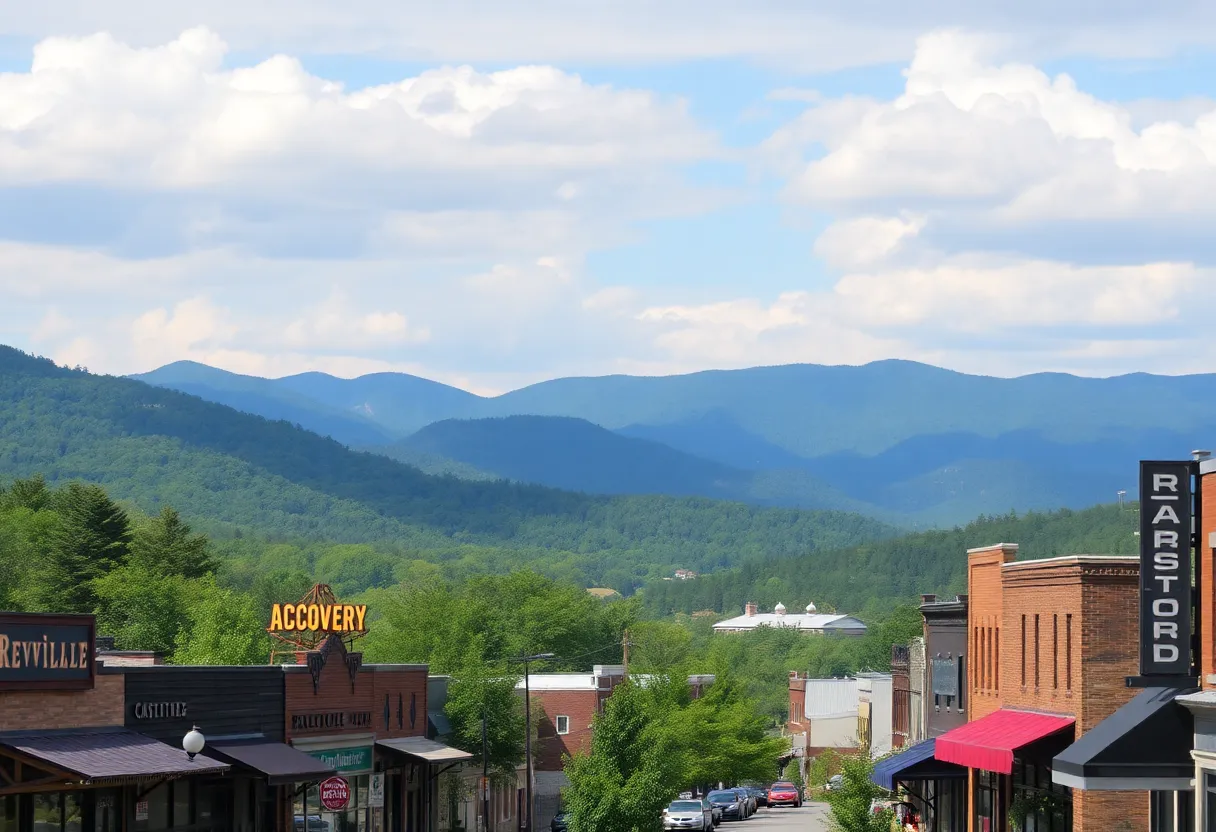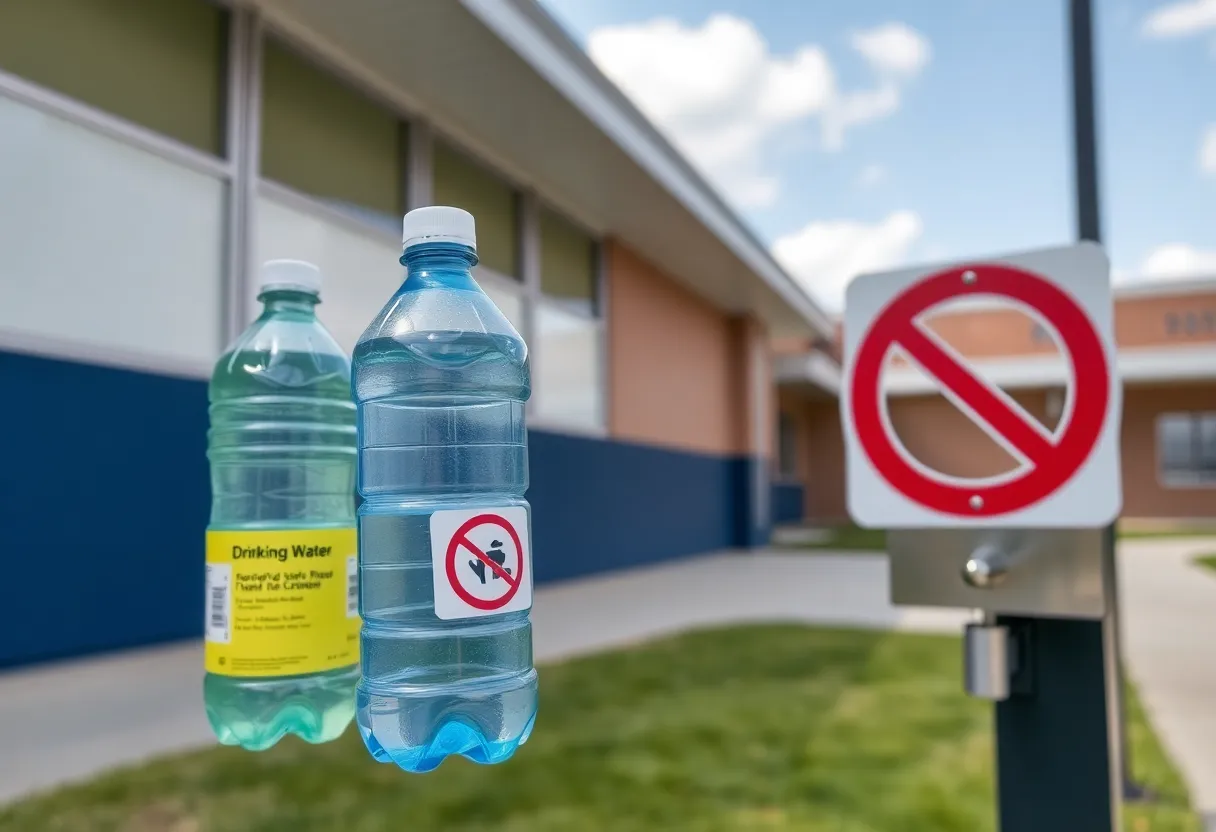News Summary
Eight months after Hurricane Helene’s devastation, Asheville, North Carolina, is experiencing a revival. Tourist attractions and local businesses are reopening, contributing to the recovery of the community and economy. Despite some ongoing challenges, infrastructure repairs are nearly complete, and visitors are encouraged to explore the region’s scenic offerings, from hiking trails to local cafes. A significant funding package has been advanced to support long-term recovery efforts, showcasing the resilience of mountain communities in the face of disaster.
Asheville, North Carolina is witnessing a revival eight months after the devastating impacts of Hurricane Helene, which made landfall as a Category 4 hurricane in October 2024. The hurricane resulted in at least 200 fatalities across six states and caused extensive flooding and damage in several mountain communities of North Carolina.
Despite the visible scars left by the hurricane, nearly all affected regions around Asheville have reopened, welcoming tourists back to the area. Local businesses, including coffee shops, restaurants, and hiking trails, are resuming normal operations, contributing to the recovery of the local economy and the community spirit.
Accommodations are available in the region, with hotel vacancies reported as of mid-May. A total of nine North Carolina destinations, stretching from the northern to southern mountains, are highlighted for tourism revival, encouraging visitors to explore the recovering areas.
Motorists are advised to check DriveNC.gov for current road openings and repairs before traveling in the mountainous regions. Specific areas like Watauga County, significantly affected by flooding, are prepared to receive visitors once again, particularly along King Street in downtown Boone, where local businesses are gearing up for the summer tourist season.
Noteworthy efforts to restore the region include the reopening of the historic Horton Hotel in downtown Boone, featuring new accommodations and a rooftop bar for guests. Banner Elk town is also embracing normalcy, offering visitors a walking map to explore local cafes, shops, as well as art classes and craft shows planned for the summer.
Many businesses have adapted post-Hurricane Helene, with some relocating or downsizing while still ensuring varied dining and recreational options are available. For example, the Old Hampton Store & BBQ and Pixie Produce have reopened, providing local favorites once again. Although the Linville Falls visitors’ center was destroyed, access to the scenic falls and surrounding trails has been restored, encouraging outdoor enthusiasts to visit.
Additionally, Grandfather Mountain State Park, including its famous Mile-High Swinging Bridge, has opened its gates to the public, though advance ticket purchases are recommended for attractions due to anticipated crowds. The Black Mountain Center for the Arts has resumed art classes and events, despite ongoing challenges like an inoperable elevator. In Asheville’s River Arts District, signs of recovery are evident as several galleries and studios have reopened their doors.
Downtown Asheville itself was comparatively unharmed by the hurricane, enabling restaurants, shops, and hotels to operate as usual. The Grand Bohemian Hotel has recently undergone renovations and is welcoming back visitors. Meanwhile, Lake Lure encourages guests to visit, but swimming is currently cautioned against due to debris present in the water.
Efforts to clear trees and repair highway washouts within a 25-mile radius of Asheville are nearly completed, allowing for safer travel in the region. The DuPont State Recreational Forest has also reopened many of its hiking trails, with updates on remaining closures available via local groups.
Areas like Bryson City continue to promote attractions such as the N.C. Wildlife and Outdoor Recreation Foundation’s Blue Ridge Snorkel Trail and the Nantahala Outdoor Center, while Cherokee, a gateway to the Great Smoky Mountains National Park, has seen some flooding and tree damage but remains a crucial stop for visitors.
In response to the long-term impacts of Hurricane Helene, the North Carolina House has advanced a $465 million funding package aimed at aiding recovery efforts. Altogether, the total allocated funding since the storm’s devastation has exceeded $1.6 billion, with the estimated damage costs rising to $60 billion. Furthermore, Governor Josh Stein has proposed additional funding to further support affected communities, focusing on economic relief for businesses that have suffered financial losses due to the storm.
This recovery journey underscores the resilience of the North Carolina mountain communities as they work to restore their landscapes, economy, and sense of community in the aftermath of a significant natural disaster.
Deeper Dive: News & Info About This Topic
HERE Resources
Blue Ghost Fireflies Illuminate Asheville’s Forests
Remains of WWII Bomber Crew Finally Returned Home
North Carolina Students Undertake End-of-Grade Testing
Asheville Hosts Beer City 20K Relay Race to Support Local Charity
Asheville Anticipates Record Travel This Memorial Day Weekend
Hi-Wire Brewing’s River Arts District Beer Garden Reopens
Asheville Parks Reopen Following Hurricane Helene Damage
Asheville Police Arrest Registered Sex Offender Near School
Asheville Private High Schools Ranking Highlights Key Metrics
Asheville Hosts NASCAR Legends for Veteran Support
Additional Resources
- NBC News: Asheville Struggles After Hurricane Helene
- Wikipedia: Hurricane Helene
- Timberline Magazine: Wisconsin Contractor Aids Cleanup
- Google Search: Hurricane Helene North Carolina
- AJC: Hurricane Helene Severed Vital Rail Links
- Google Scholar: Hurricane Helene Asheville
- ABC11: Months After Hurricane Helene
- Google News: Hurricane Helene NC

Author: STAFF HERE ASHEVILLE WRITER
The ASHEVILLE STAFF WRITER represents the experienced team at HEREAsheville.com, your go-to source for actionable local news and information in Asheville, Buncombe County, and beyond. Specializing in "news you can use," we cover essential topics like product reviews for personal and business needs, local business directories, politics, real estate trends, neighborhood insights, and state news affecting the area—with deep expertise drawn from years of dedicated reporting and strong community input, including local press releases and business updates. We deliver top reporting on high-value events such as the Asheville Bread Festival, LEAF Festival, and mountain sports tournaments at Biltmore Estate. Our coverage extends to key organizations like the Asheville Area Chamber of Commerce and Explore Asheville Convention & Visitors Bureau, plus leading businesses in hospitality and brewing that power the local economy such as the Biltmore Estate and Sierra Nevada Brewing Company. As part of the broader HERE network, including HERECharlotte.com, HEREGreensboro.com, HERERaleigh.com, and HEREOBX.com, we provide comprehensive, credible insights into North Carolina's dynamic landscape.





